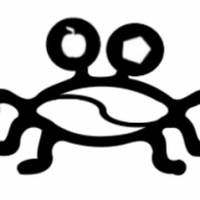Ramen, Schüttler! Wenn die Erde flach ist, ein Kreis eckig ist, die Sonnen kalt sind, dann ist das auch eine Methode zur Erforschung von Heilkräften!
[…] In this quote from Rupert Sheldrake’s talk: Sacred Sites, Tourism & Ancient Sacred Places, he gives us some ideas about the motivation for people visiting sacred sites: ‘They have to pretend they are not going there to say a prayer or ask for some blessing. They have to pretend they are going there because they have an interest in Art History… and as soon as they arrive tourist guides spring up and tell them all sorts of facts. ‘This building was built in 1386 etc’… Facts that go in one ear and come out the other because they’re not really interested in that at all. They’ve gone because it’s a sacred place, but being disempowered by being secular they can’t actually kneel down and say a prayer, or light a candle. Interestingly in the UK cathedrals and churches have candles. When I was a child none of them did….’
Nicht genug der Referenz auf den Schwurbler Sheldrake, nein, der Oberschwurbler Chopra muss auch herhalten:
Schenk uns bitte ein Like auf Facebook! #meinungsfreiheit #pressefreiheit
Danke!
Prover 4 who was helped by someone from a local church joked about needing ‘divine intervention.’ So, even though, like prover 3, he has no religious connection in the traditional sense, he was helped by someone who was aligned to god in a different way to his own experience. Then there is always the question of who or what is god. I like Deepak Chopra’s interpretation of god: God is a verb, not a noun… It’s something you do, not a bloke with a beard. Something you feel. When you feel ‘in tune’ with life, you could say that’s a divine experience. So the proving brought up issues about connection. Connection with whatever you might think of as your divine connection.
Ramen, WO sind die Homöopathen, die sich von solch Geschwurbel distanzieren? Bitte meldet Euch! Oder ist dies nicht doch eine valide Arzneimittelprüfung?
Ramen, das Monsterr sei mit Euch.
